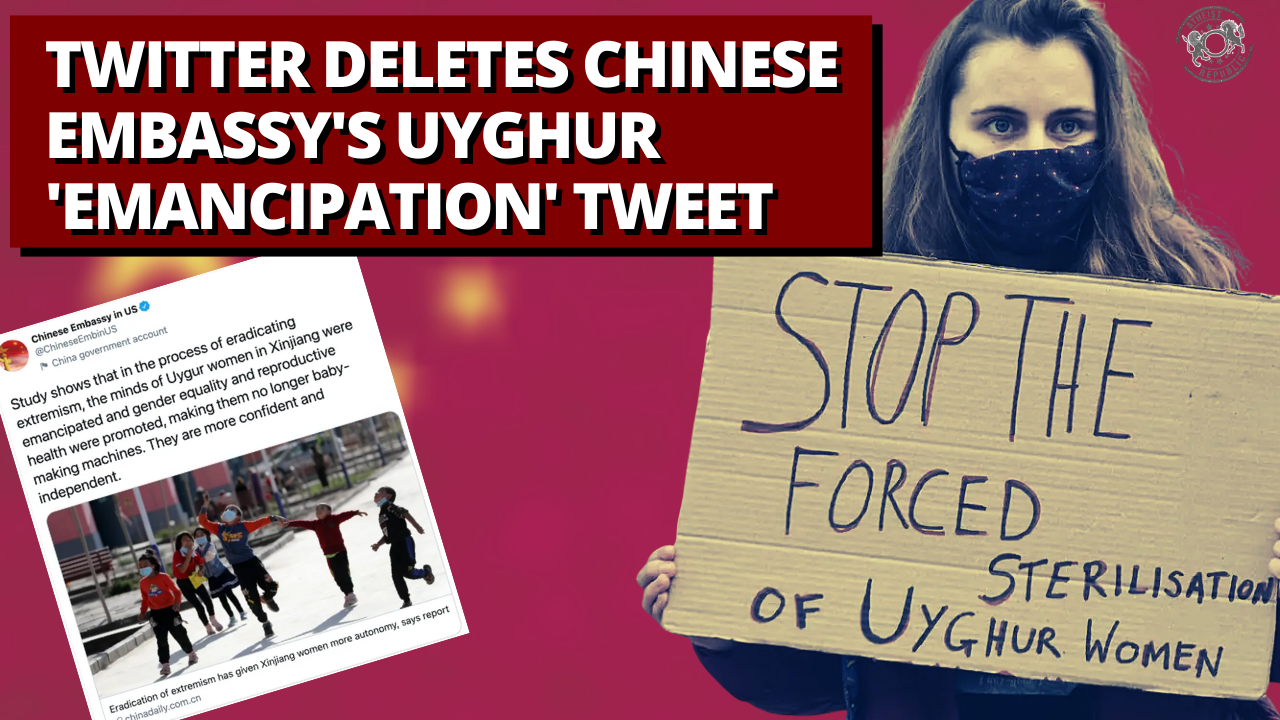
Uighur people live in northwestern China's Xinjiang province and are mostly a Muslim minority group. In June, the Associated Press (AP) found that the Chinese government mandates inhumane birth control measures on ethnic minorities in Xinjiang.
According to the scholar Adrian Zenz, population growth in Xinjiang has declined dramatically in recent years. Growth rates in the two largest Uighur prefectures have fallen by 84% between 2015 and 2018 and continued further decline in 2019.
Twitter recently deleted a post from the U.S. Chinese Embassy that claimed that Uighur women had their minds "emancipated" by these policies in Xinjiang. The tweet states: "Study shows that in the process of eradicating extremism, the minds of Uygur women in Xinjiang were emancipated and gender equality and reproductive health were promoted, making them no longer baby-making machines. They are more confident and independent."
Twitter removed the Chinese Embassy's tweet following widespread objections that accused Beijing of seeking to expunge Uighur culture. The post was deleted for violating rules against “the dehumanization of a group of people,” according to Timothy B. Lee, the Senior Reporter at ARS Technica:
The embassy account’s tweet claims that Uighur women are "more confident and independent" as a result of "reproductive health" being "promoted" to them. The tweet linked to an article written by state-run media China Daily, which celebrated declining birth-rates in China’s Xinjiang Uighur Autonomous Region. The report further claimed the elimination of religious extremism in Xinjiang "had given Uighur women more autonomy when deciding whether to have children."
The German scholar Adrian Zenz, known for his studies of the re-education camps in Xinjiang, reports Uighur women are threatened with being imprisoned in internment camps if they refuse to abort pregnancies that exceed local birth quotas. The report based its findings on official regional data from the Chinese government and interviews with Xinjiang's ethnic minority women.
Women in Xinjiang collectively reported the government implanted intrauterine devices (IUDs) in them against their will and coerced others into sterilization surgeries. Former detainees in internment camps said injections were administered that stopped their menstruation or triggered abnormal bleeding.
The Chinese government boldly denies those claims, saying that the allegations are "baseless" and show "ulterior motives." China has been waging a years-long campaign against what it calls terrorism and religious fanaticism in Xinjiang.
On Monday, January 11th, a deputy spokesperson for the regional government of Xinjiang, spoke to reporters following the backlash from the tweet. This news conference was the latest attempt from Beijing to deflect rising international criticism over its policies in Xinjiang, particularly over alleged forced labor and the detention of Uighurs and others confined in prison-like centers for political indoctrination. China says the centers intend to combat extremism and teach job skills, but former residents and rights groups say they target Muslims and ethnic minority languages and cultures.
